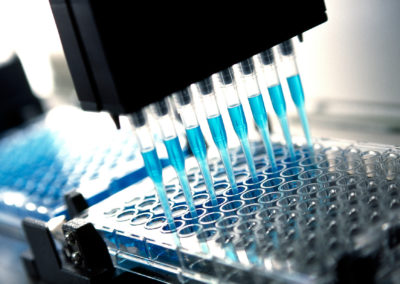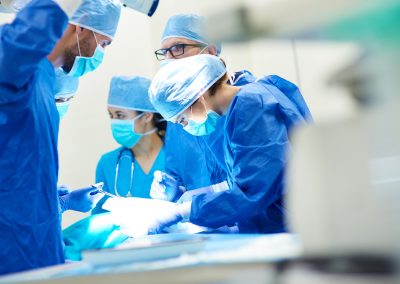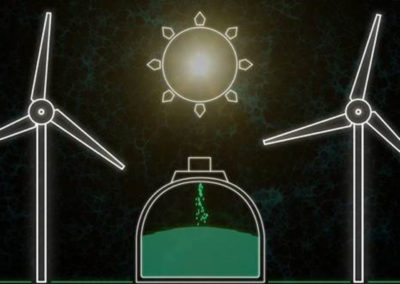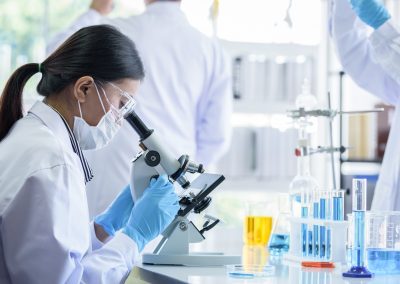Imperial’s interdisciplinary expertise in biotechnology leads the UK field and spans many disciplines. Many of our experts work together as part of the Industrial Biotechnology Hub and Agri-Net which are dedicated to developing innovative solutions for industry and government agencies.
Areas of expertise include…
Biotechnology
Synthetic biology, biocatalysis and metabolic engineering, bioinformatics, metabolomics, proteomics, glycomics, nanotechnology, imaging, image analysis and information systems, artificial bioactive material and implants plus neurotechnology.
Applied Biosciences
Bioenergy/biorenewables, bioremediation and waste treatment, bioprocessing and bioseparations, biologics, implants, regenerative medicine and tissue engineering, agri-food, brain-related illnesses and blast injury.
Microbial Strain Engineering, Design and Improvement.
With increased environmental and economic constraints on industries, the bioproduction of molecules is becoming a sustainable alternative to traditional methods. To scale it up to industrial production, we still need significant improvements in the methods, using genetic engineering and metabolic engineering.
Engineered micro-organisms have a wide range of applications in
- Oil and Gas – e.g. production of biodiesel, biokerosene, hydrogen, and electricity from renewable sources
- Pharmaceuticals – e.g. production of active compounds, biosensors, microbiome engineering
- Chemicals – e.g. production of bulk chemicals or high value compounds
- Engineering – e.g. production of novel materials and biological circuits
- Defence
Dr Rodrigo Ledesma-Amaro’s group at Imperial have a vast knowledge of microbial metabolism, and its regulation, in organisms ranging from yeast and fungi to bacteria. Through engineering-based improvements – such as increasing resistance to inhibitors, enabling the use of low-cost substrates and maximising the production of a desired compound – they can ‘tailor’ micro-organisms to perform desired tasks in a cost-efficient manner – and guide you on the downstream process.
The group’s expertise includes:
- Development of synthetic biology, metabolic engineering and molecular biology tools.
- Rational metabolic engineering for bioproduction.
- Metabolic modelling as a tool to identify engineering targets.
- Decreasing bioproduction cost by strain improvement at different levels.
- Reliable chassis strains generation.
- Selecting the best host for each product and process.
- High-throughput strain improvement techniques.
Experts include:
Dr Rodrigo Ledesma-Amaro – leads a research group at the interface of synthetic biology and metabolic engineering. His expertise includes microbial biotechnology and communities, applications in industrial biotechnology and biomedicine.
Advisory services
Product design, research methods, data analysis, technology evaluation for investment, technological innovation, patent evaluation, prototype and protocol development, policy, cyber security and more. Assisting museums, writers, film makers and artists to ensure creations scientifically sound.
Expert insight
Membership of Scientific Advisory Boards and Technical Panels, advice and guidance on drug development programmes, thought leadership, conference speakers, literature reviews and provision of foresight.
Analysis and testing
Use of the world-class specialist facilities and technicians at Imperial for projects ranging from aerodynamic measurements and medical imaging to structural testing and analysis.
Our consultants are world-leading experts in their field, committed to on-going research.
Who to contact:

Vibhor Jajoo
Engagement Manager
For Chemical Engineering, Earth Sciences, Bio-Engineering, Bio-Tech and Medical Devices.







